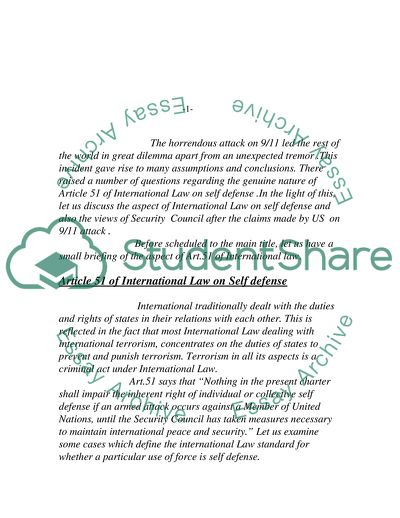Cite this document
(The International Law on Self-defence after 11 September Term Paper, n.d.)
The International Law on Self-defence after 11 September Term Paper. Retrieved from https://studentshare.org/law/1707471-the-international-law-on-self-defence-after-11-september
The International Law on Self-defence after 11 September Term Paper. Retrieved from https://studentshare.org/law/1707471-the-international-law-on-self-defence-after-11-september
(The International Law on Self-Defence After 11 September Term Paper)
The International Law on Self-Defence After 11 September Term Paper. https://studentshare.org/law/1707471-the-international-law-on-self-defence-after-11-september.
The International Law on Self-Defence After 11 September Term Paper. https://studentshare.org/law/1707471-the-international-law-on-self-defence-after-11-september.
“The International Law on Self-Defence After 11 September Term Paper”. https://studentshare.org/law/1707471-the-international-law-on-self-defence-after-11-september.


